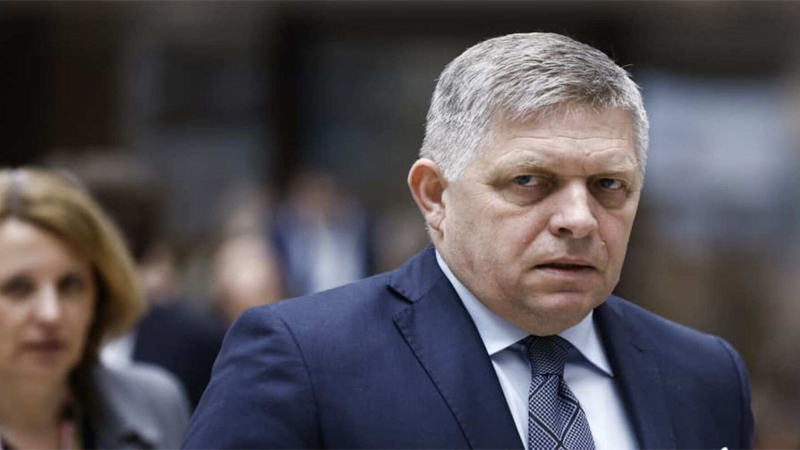In a shocking turn of events, Robert Fico, the Prime Minister of Slovakia, was targeted in an assassination attempt, causing widespread concern and exposing deep political divides within the nation.
Hospital officials revealed on Thursday that Fico, 59, was in a “very serious” but stable condition following the attack, which involved multiple gunshot wounds. The incident occurred while Fico was engaging with supporters on the street after presiding over a government meeting in the town of Handlova.
Miriam Lapunikova, director of the F.D. Roosevelt University Hospital in Banska Bystrica where Fico is being treated, stated that the Prime Minister underwent five hours of surgery involving two surgical teams to address his injuries. Despite stabilization, Fico remains in intensive care.
The assailant, reportedly a 71-year-old individual identified as a member of the Slovak Society of Writers and a former mall security guard, allegedly voiced dissent against government policies in an undated video on Facebook. His motive and background are still under investigation.
Political figures both within Slovakia and abroad swiftly condemned the attack, with Slovak President Zuzana Caputova calling for a reduction in political tensions and unity among parliamentary leaders. Peter Pellegrini, the President-elect and Fico ally, urged parties to scale back campaigning efforts in light of the incident.
The attempted assassination marks the first significant attack on a European political leader in over two decades, highlighting the increasingly volatile political landscape across the continent.
Fico, a dominant figure in Slovak politics for the past two decades, has faced criticism for his nationalist and left-leaning economic policies, as well as his handling of media freedoms and the rule of law. His recent policy shifts, including attempts to reduce penalties for corruption and establish closer ties with Russia, have further polarized public opinion.
As Fico’s condition remains precarious, questions arise regarding the adequacy of his security detail, particularly considering the assailant’s ability to breach his protection.
In response to the incident, opposition parties have called for restraint and unity, canceling scheduled rallies to prevent further escalation of tensions. However, tensions between the government and media persist, with Fico’s administration accusing them of exacerbating the political climate.
The aftermath of the assassination attempt leaves Slovakia grappling with uncertainty and division, underscoring the urgent need for political stability and reconciliation.











Leave a Reply